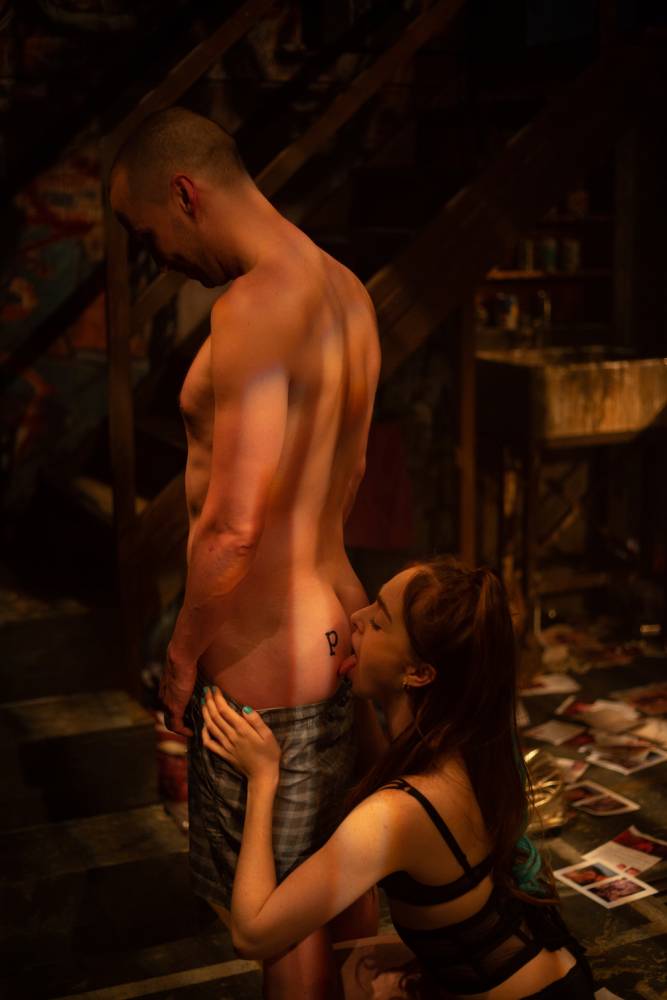A disease is wiping out the human race, and those unlucky enough to be positive will die a slow death. This is the premise of the hard-hitting and surreally erotic play Beirut.

Beirut, now playing at the Park Theatre, imagines what would happen, in New York City, where a disease is wiping out some of the population. Meanwhile, one positive man called Torch (Robert Rees), and a negative woman called Blue (Louisa Connolly-Burnham), are in love with each other. How do they express their love? The disease is spread via bodily fluids – any fluids – including saliva, sweat, and kissing. So what do they do?
Torch lives in a small underground bunker, and Blue sneaks in to be with him. But she’s breaking the law; negatives are not allowed to be with positives, but they clearly love, and lust, for each other. The two gutsy actors spend all of the time in the play (60 minutes) in their underwear, or sometimes less, but it’s not sexy, it’s hard-hitting, with raw intensity both actors convey in the emotions their characters are going through. Torch will definitely die and Blue will almost certainly live, that’s if she doesn’t give in and contract the disease from Torch.
The backstory of this play has to be mentioned. It was written by Alan Browne, from San Francisco, in the mid-1980s, at the height of the AIDS’ crisis when gay men were dropping like flies. It was first performed at the Bay Area Playwrights Festival in 1986, and three years later Browne would die of the disease himself, at the age of 44. So we can assume that the unmentioned disease Browne alludes to is AIDS.
But since Browne’s original intention was to not write a story about HIV and AIDS (perhaps he thought the future was going to be just like the plot of his play), it, in my opinion, would work much better as a play about that dreadful disease. However, it still is a brutal in-your-face show that is perhaps not as relevant now as when it was written, but it still makes for explosive, and well-acted, theatre.
